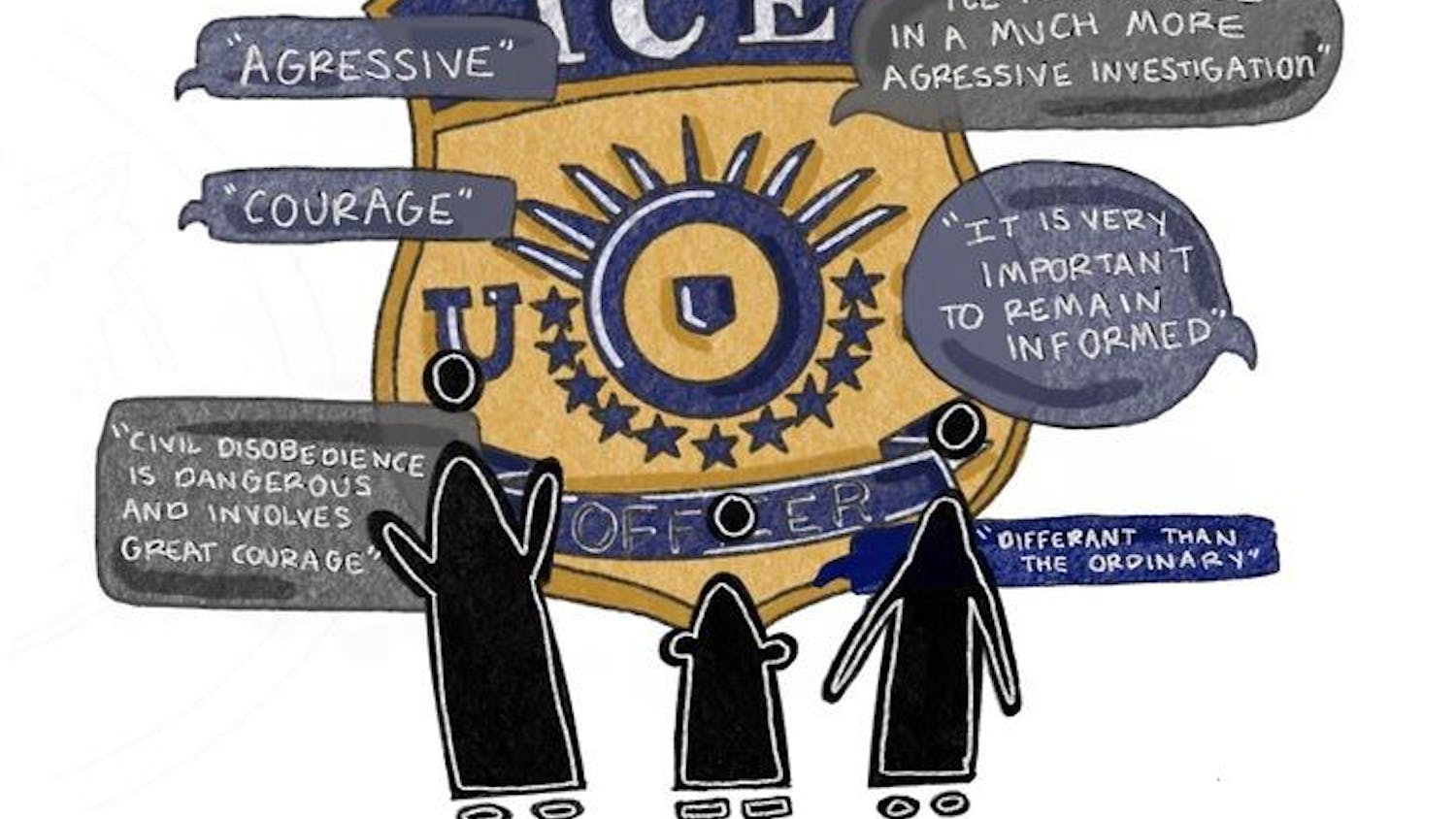Emory University President Gregory Fenves signed onto the Race to Zero global climate campaign and placed the University in the Climate Leadership Network (CLN) on Oct. 3 after he and Associate Vice President of Sustainability Ciannat Howett met with members of the Emory Climate Coalition to discuss the University’s next steps in combating climate change.
The Race to Zero is an international campaign created by the United Nations in 2020 to unite institutions, companies and cities in setting immediate goals for achieving net zero carbon emissions. CLN is specifically geared towards aiding universities and colleges that seek to take urgent climate action. Howett and Fenves also expressed interest in continuing to work with the Coalition on other climate-related issues in the future.
The Coalition is an umbrella term that includes Emory Climate Organization, Emory Climate Analyse and Solutions and Emory Climate Reality Project. Coalition leaders Ben Levitt (22C), Clare McCarthy (23C, 24PH), Jack Miklaucic (23C), Jesus Palenzuela (23C), Eleanor Partington (22C), Erin Phillips (22C) and Sydney Warner (23C) planned a protest on Sept. 24 that led to the conversation with Fenves and Howett.
Levitt and Miklaucic said the science around achieving environmental goals has changed since Emory’s 2011 Climate Action Plan, the last climate plan the University released. Given Emory’s status as a highly ranked university, both Levitt and Miklaucic agreed that participating in both the Race to Zero and the Climate Leadership Network will allow the University to implement the newest developments in climate science.
“The Race to Zero specifically is trying to get Emory and institutions around the world to take greater climate action in advance of the Conference of the Parties that starts later this month,” Levitt said. “It’s really based on the newest science from the [Intergovernmental Panel on Climate Change] released in August in the sixth assessment and accord, and it’s trying to use that science to leverage immediate goals.”
By joining CLN, the University has committed to updating their climate action plan once every five years and submitting annual progress reports to the network and the public. Through immediate action and urgency, the University is attempting to reach net zero carbon emissions before their original goal of 2050, by which their 2011 statement said they would cut emissions by 50%.
Miklaucic said that one aspect of the current climate plan in need of revision concerns the specifics of how the University plans to reach net zero.
“[The current] climate action plan says Georgia Power is what we rely on to get to net zero, but it doesn’t say what we’re gonna do about it,” Miklaucic said.
As a result of these climate action updates, Miklaucic and Levitt said that more resources, including institutional funds and a new climate action liaison, will be put towards achieving Emory’s environmental goals.
“We’re hoping that by next year, Emory will have hired that person and that person will be a full time internal staff member who is really starting to make that work happen,” Levitt said.
Another important change is the creation of a climate action task force by the fall of next year. This task force would consist of students, faculty and staff passionate about combating climate change. Levitt said this task force will create “infrastructure for ongoing structured collaboration” and will hold the University accountable for achieving their goals.
Miklaucic added that students will have more opportunities to have their voices heard and to get involved in climate justice. Still, he stressed that it should be the University’s responsibility to really make changes.
“It shouldn’t be a student's job coming in to spend a lot of time really thinking about this because they’re not the ones with the resources necessary to make this happen,” Miklaucic said.

In the past year, Emory Climate Coalition has worked to further climate justice efforts at the University by coordinating strikes and working with College Council to pass a resolution for heightened climate urgency. In the spring, they researched the University’s Emory climate commitments in order to push for change. They then organized a virtual climate strike in April and ran Climate Week.
“We’re working off the backs of years of student activism to get to this point,” Levitt said. “The most important point is that this is a multidisciplinary, University-wide initiative.”
While Coalition leaders expressed excitement at the University’s adoption of the Race to Zero initiative and joining the CLN, student leaders said there is still more work to be done. Levitt, in particular, expressed a need for the University to further their work on transit and social justice initiatives.
Miklaucic agreed, saying, “The results that we’re hoping for are not even close to here yet. That’s not their fault, they’re just gonna take time, but I can’t feel satisfied yet.”







